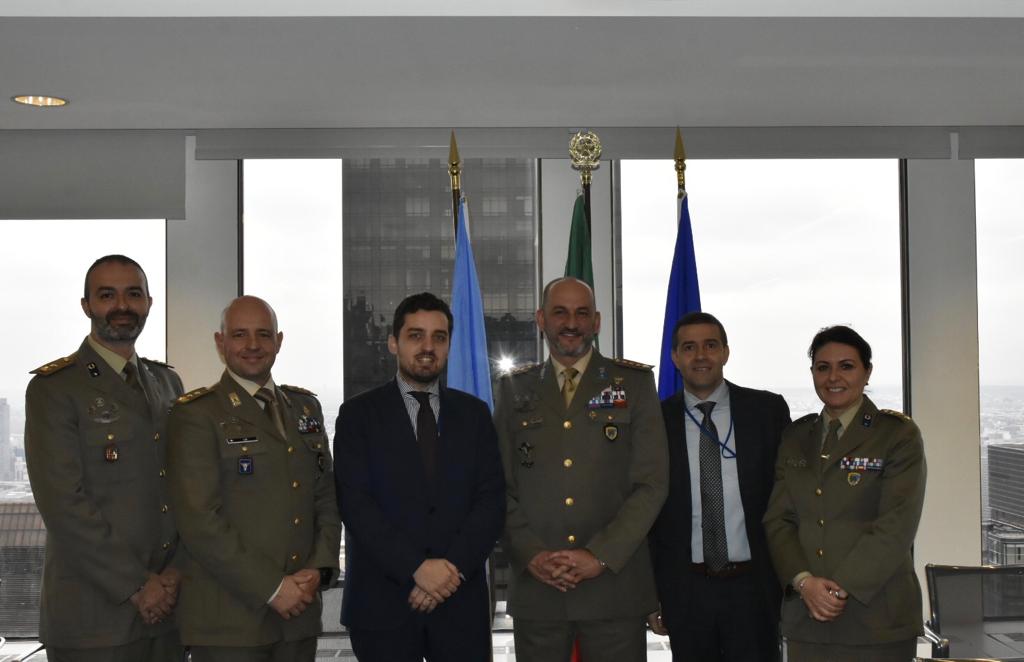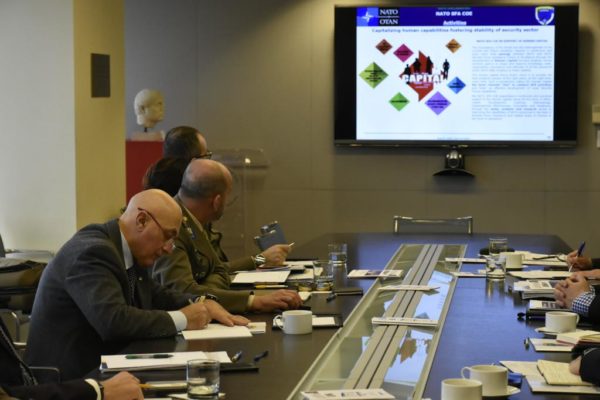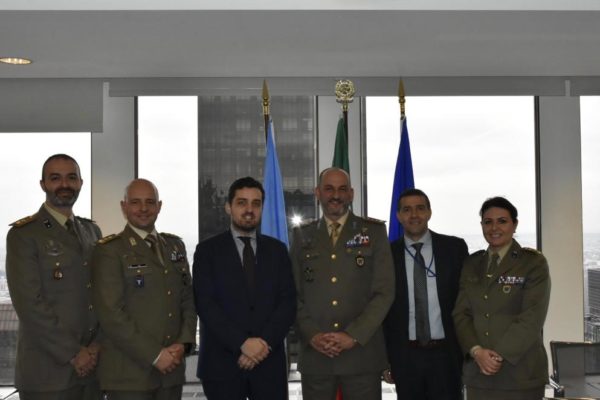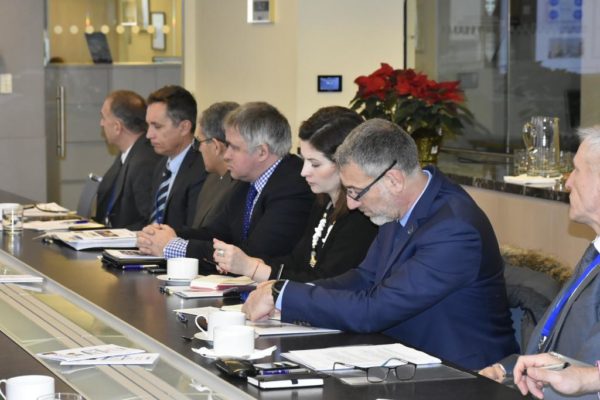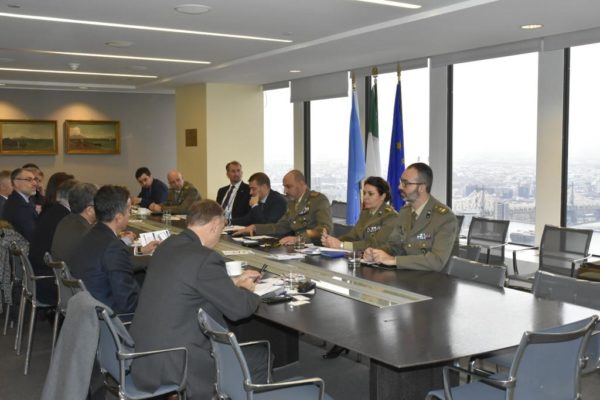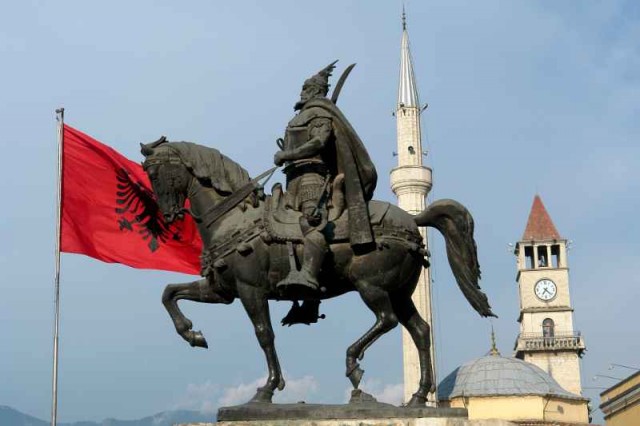NATO SFA COE met Department of Peace Operations (DPO) representatives at the Permanent Mission of Italy to the United Nations in New York.
On the 10th of December 2019 a delegation from the NATO Security Force Assistance Centre of Excellence (NATO SFA COE) met, at the Permanent Mission of Italy to the United Nations, the representatives of the Department of Peace Operations (DPO), with the aim to promote a higher cooperation between the Centre and the UN.
During the meeting the NATO SFA COE Director, after having explained the mission, structure and capacity of the Centre, highlighted areas of possible cooperation with the United Nations, in particular in the area of Security Sector Reform (SSR) and Rule of Law, Disarmament Demobilization and Reintegration (DDR), Protection of Civilians (POC) and the importance of the training activities.
With regard to this, in October the NATO SFA COE held a Legal Roundtable on the “Rule of Law for SFA activities in Crisis Zones”, that reflected the idea to have an interdisciplinary approach with the main International Organizations in order to examine crosscutting topics. DPO representatives pointed out the need for a clear legal framework for the operation scenarios and training, as well as the opportunity to include Local Security Forces and Institutions from the Host Nation (Security Sector Reform) in the Stability Building process.
During the UN meeting the Law Training Program drafted by the NATO SFA COE was introduced to the UN representatives in order to identify a common ground to develop the foundations for a possible cooperation in creating tools such as Exercises, Models, Courses and Manuals.
A particular interest was also shown towards a joint analysis of the Institutional Advisor and the need of a common development of its profile in the NATO and UN environment.
The representatives of the organizations (DPO OMA, DDR Section, SSR Unit, DOS of the Assistant Secretary General, Support Team ITS, MILAD Finland/Slovenia/Sweden/US) that took part to this event expressed their interest in collaborating through their Subject Matter Experts and sharing their policies, guidelines and strategic models with the NATO SFA COE.
As a follow up to this event other meetings were held with the DDR Section and the SSR Unit to develop future lines of effort in their respective areas that are mutual with SFA and to analyse at a strategic level the current gap in the common activities between different organizations based on their own policies.








